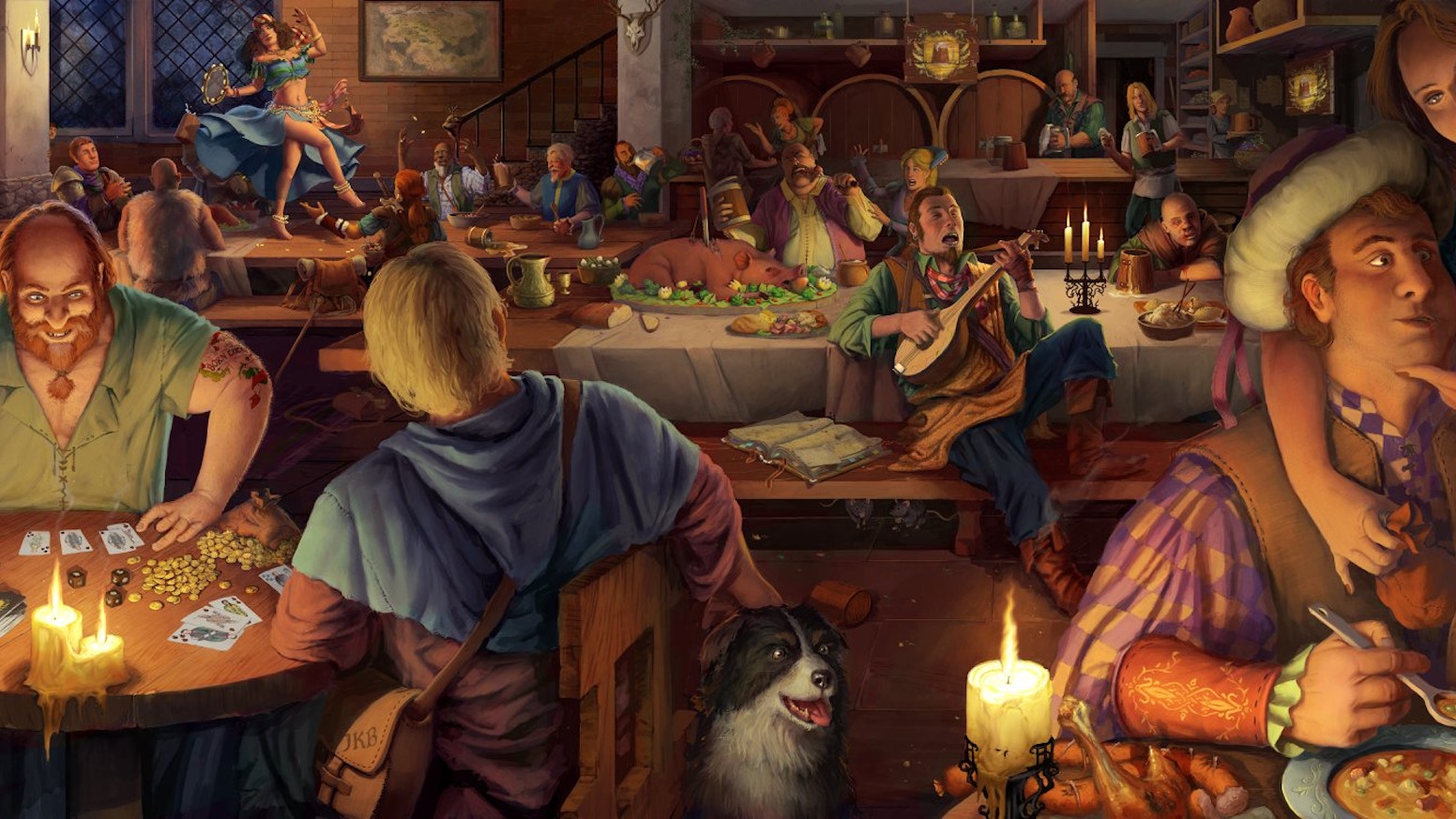Not
so online. The DM can’t whip out a deck of cards and start dealing,
all the while laying out house-rules. Falling back on the hobby’s
early improvisational roots, you can roll out both use real gambling
games to play for a winner. Online, not so much.
Besides
the physical barrier to play, if some PCs are in to gaming while
others want to move on to other goals this can cause disruption in
play for everyone if the games of chance take too long. I therefore
conjured up a quick way to resolve exotic card games while retaining
a reusable mechanic which gives the thrill of hitting a payout!
For
my occasion I came up with a poker game called “Dragon Master”,
and resolved it thusly; any PC who wants to play a hand must put up
an ante. This is added with all other antes to give the starting
“pot”. The DM decides how many additional players are so the
number is correct. Now each PC must Save vs. Poison to get a playable
hand, a hand worth betting on. If not then the PC looses their ante
and must wait for another round to play. The NPC’s the players are
gambling against never roll for a playable hand. This set up is
completely player-facing. If only one PC is gaming against others
than rolling for a playable hand is straight forward. Roll your
Poison Save till you succeed. Pay the amount of antes equal to the
number of hands you were “dealt” before you stayed in.
Now
the PCs declare their wagers and roll to win. This is resolved with
an attribute roll. The PCs are free to choose from Intelligence,
Wisdom or Charisma. Both the DM and any active PC players roll a d20.
Winner is the highest number without going over their chosen
attribute. Rolling over your attribute represents folding, losing in
a showdown, however the PCs and DM want to role play the encounter.
There is nothing in the way for any amount of role play PCs want to
do because the final dice roll always gives you the winner.
I
give my PCs xp for every bit of cash they win, even if they loose it
all in following hands. Nothing sharpens a card player like taking a
few beatings along the way! The improving saving throw with character
advancement complements the idea of a more experienced traveler and
adventurer getting mre playable hands. Face it, good card players are
more than likely to have had a wide variety of wordly experiences,
and PC level is a good representation of this in game terms. The d20
throw against attribute counts both the edge a character may have
with high numbers while at the same time these flat rolls can also
throw surprises!
So,
to recap;
1.
Place your ante.
2.
Roll save versus poison to continue, or loose ante.
3.
A saved ante now must be wagered on, PCs still in declare their
wagers.
4.
Roll d20. Highest number without going over attribute wins.
5.
Repeat.

its a good
ReplyDeleteSleeping Suits for Ladies in Pakistan
buy womens sleepwear in pakistan
bridal nighty in pakistan
rfpgurus
rfp gurus